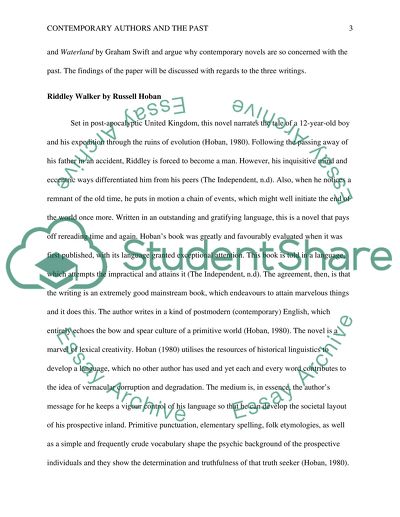Cite this document
(“Contemporary Authors and the Past Essay Example | Topics and Well Written Essays - 2000 words”, n.d.)
Retrieved from https://studentshare.org/english/1491380-why-is-the-contemporary-novel-so-concerned-with
Retrieved from https://studentshare.org/english/1491380-why-is-the-contemporary-novel-so-concerned-with
(Contemporary Authors and the Past Essay Example | Topics and Well Written Essays - 2000 Words)
https://studentshare.org/english/1491380-why-is-the-contemporary-novel-so-concerned-with.
https://studentshare.org/english/1491380-why-is-the-contemporary-novel-so-concerned-with.
“Contemporary Authors and the Past Essay Example | Topics and Well Written Essays - 2000 Words”, n.d. https://studentshare.org/english/1491380-why-is-the-contemporary-novel-so-concerned-with.


